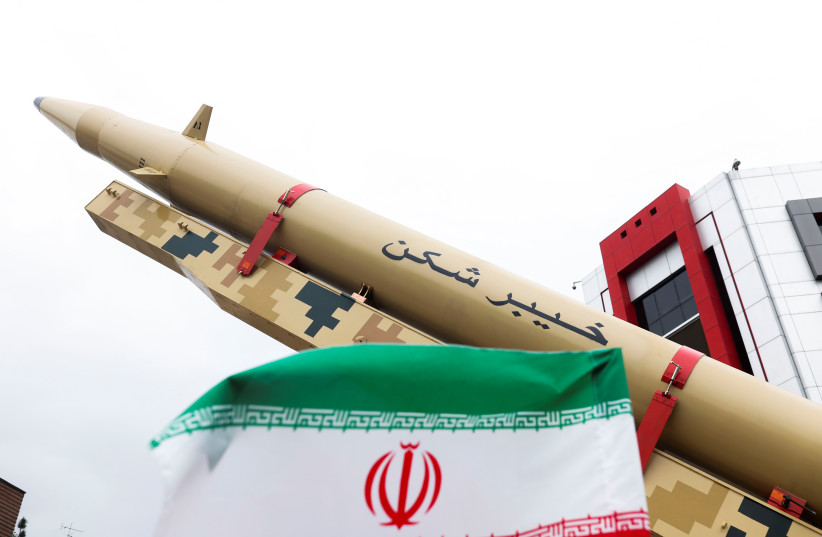IAEA Director-General Rafael Grossi on Monday told the IAEA Board of Governors that he has corresponded with new Iranian President Masoud Pezeshkian and is hopeful that a near-future meeting will lead to progress regarding the nuclear standoff.
Grossi specified at a press conference later on Monday that he hoped that he and Pezeshkian would meet before election day in the US on November 5.
He noted that since Pezeshkian’s inauguration on July 30, there has been no progress with the Islamic Republic, despite public statements some officials have made about trying to improve the situation with the West.
Grossi said, “There has been no progress in the past 15 months toward implementing the Joint Statement of 4 March 2023,” in which Tehran had promised to start to fix a number of its nuclear violations and lack of cooperation with the UN nuclear watchdog.
He added, “It has been more than three-and-a-half years since Iran stopped implementing its nuclear-related commitments under the JCPOA, including provisionally applying its Additional Protocol, and therefore it is also over three-and-a-half years since the agency was able to conduct complementary access in Iran.

“Consequently, the agency has lost continuity of knowledge in relation to the production and inventory of centrifuges, rotors and bellows, heavy water and uranium ore concentrate,” he stated.
He further noted, “Iran says it has declared all nuclear material, activities, and locations required under its NPT Safeguards Agreement. However, this statement is inconsistent with the agency’s findings of uranium particles of anthropogenic origin at undeclared locations in Iran. The agency needs to know the current location(s) of the nuclear material and/or of contaminated equipment involved.”
Inconsistent Iranian statement
Grossi was referring to extensive evidence of Iranian nuclear violations, which Mossad exposed when it raided Tehran’s nuclear archives in 2018.
He also highlighted that the Islamic Republic continues to increase its 20% and 60% enriched uranium stock as well as the number of cascades it has for enriching uranium – all in violation of the 2015 nuclear deal.
For the past few years, every few months, the IAEA Board has met to confront the Iran nuclear issue, with it issuing a condemnation of Tehran in June of this year and in 2022, but to date, it has failed to refer the issue to the UN Security Council where global sanctions could potentially be “snapped back” on Iran.
On Monday, Grossi indicated that there was no chance that the IAEA Board would refer Iran to the UN Security Council this week either. In fact, he went even further, suggesting that he was not anticipating any punitive action or threats for the foreseeable future from the IAEA Board against Tehran.
Still, Grossi harbored some hope that negotiations with the Islamic Republic could improve the nuclear standoff situation enough and before an October 18, 2025, deadline, at which point various nuclear restrictions and punitive actions relating to Iran from the 2015 nuclear deal will lapse.
Israel and the US have both hoped to get Iran to rewind its nuclear program before that deadline since afterward there will be little leverage to hold over Tehran other than a potential military strike.
Grossi also hinted that he thought all of the involved parties might be more ready to reach a resolution once the results of the upcoming US presidential election were clear.
Former US president and current Republican presidential nominee Donald Trump has consistently taken a much harder line with Iran than Democrats, including US Vice President and current Democratic presidential nominee Kamala Harris, who has heavily supported a return to the 2015 nuclear deal.
None of the recent US administrations – Obama, Trump, or Biden – have fully succeeded in blocking Iran’s progress toward a nuclear weapon, with each achieving some wins with diplomacy or pressure but eventually being outfoxed by Iran’s patient strategy.
Mossad operations have proved effective in delaying Iran’s progress but not in ending the nuclear program.
Pezeshkian is viewed as more moderate than his predecessor, Ebrahim Raisi, and than the country’s Supreme Leader, Ayatollah Ali Khamenei, but so far there are no clear signs that he will have the power to make the concessions to the West necessary to end the ongoing stalemate.
